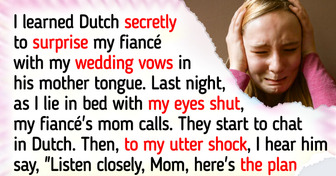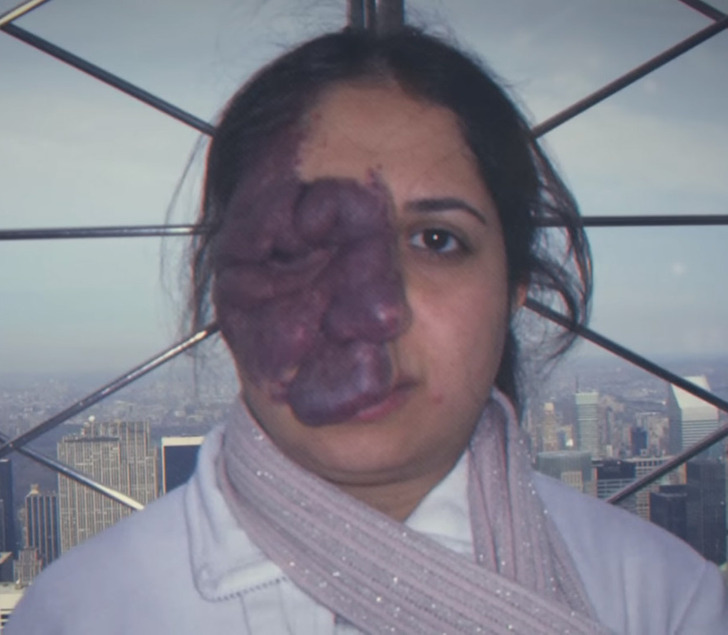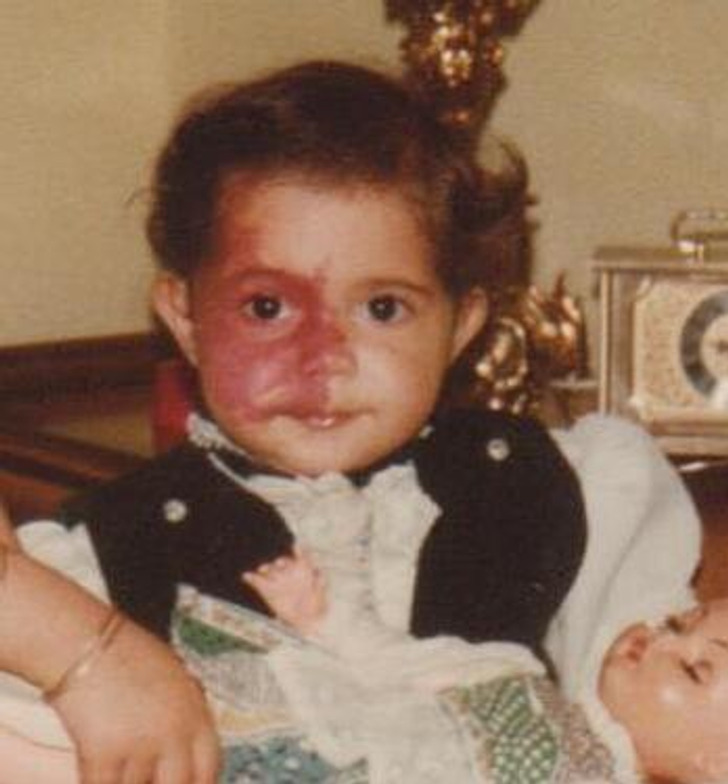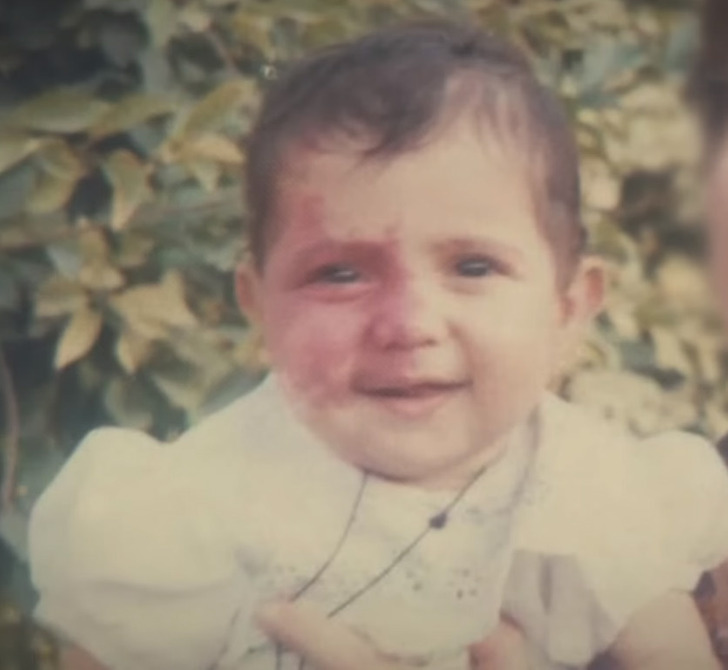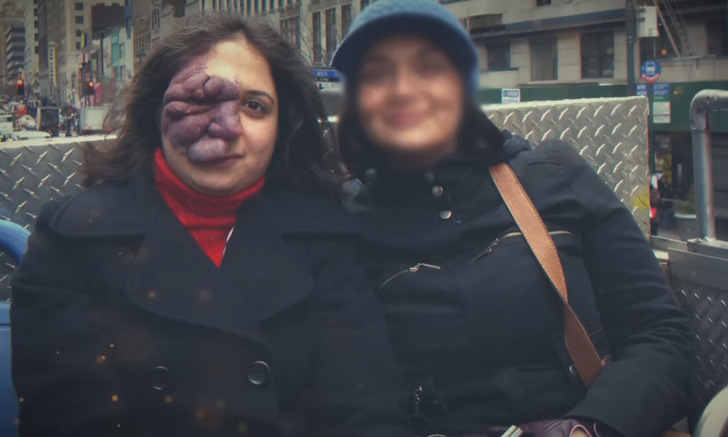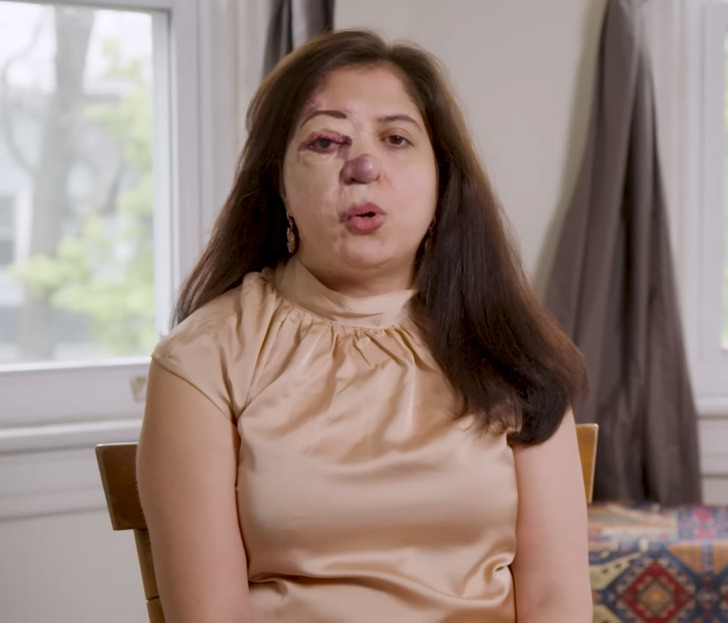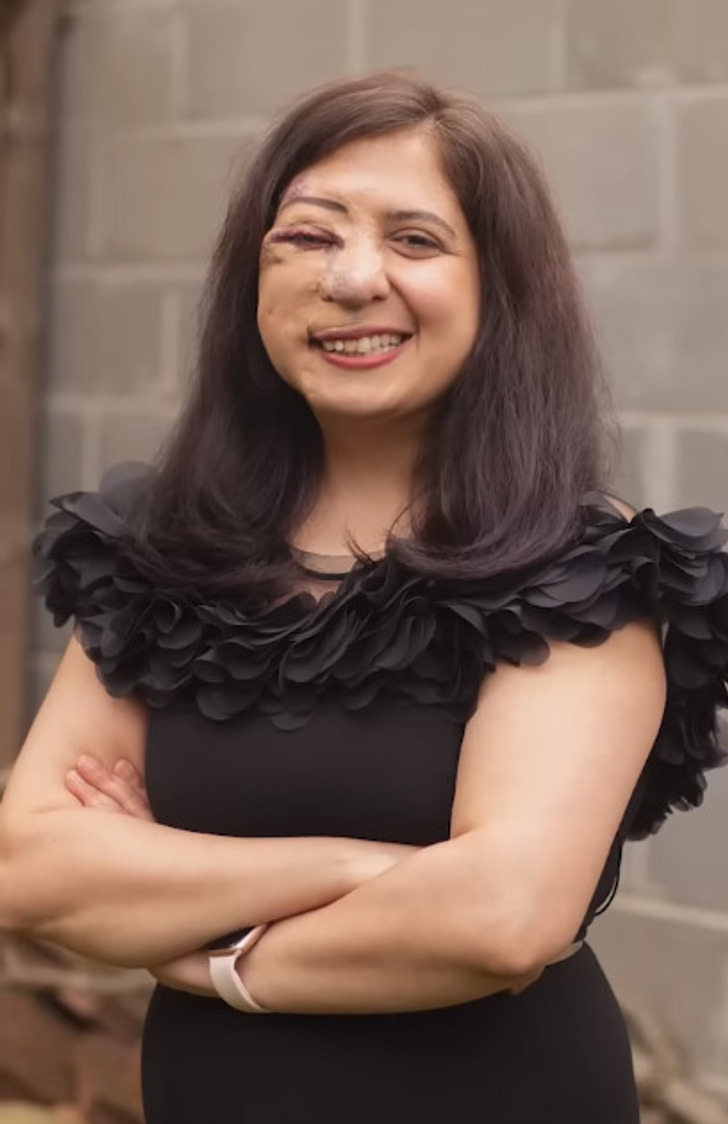Wow! She is truly amazing and brave!
“People Said I Shouldn’t Leave The House,” Woman Who Was Born with Rare Birthmark Finally Get Her Confidence Back
Ellahe Haghani, a 41-year-old woman from Iran, faced numerous challenges due to a rare birthmark. She had to move to another continent in search of a solution. Additionally, she encountered unkind comments from strangers, making it difficult for her to secure employment.
Being rejected by doctors.
Haghani was born with Sturge Weber Syndrome (SWS), causing a red, purple mark on her face and taking away vision in her right eye. SWS, linked to a port-wine birthmark, can bring neurological issues and eye problems. The symptoms vary and show up at birth. According to the National Organization for Rare Disorders (NORD), treatment depends on the symptoms and their seriousness.
“People assumed that I am an acid attack survivor. When I was born, it was just discoloration to the right side, but as I grew, the soft tissue started to grow and become bigger and thicker.
I also lost my eye vision when I was around 20 years old,” she explained.
She looked for a cure everywhere. Unfortunately, she was rejected by many doctors due to the high risk involved.
“My family searched everywhere for a way to cure me, but nothing was available, all doctors said was that the lesions could not be treated surgically or medically. They feared that as soon as they touched my birthmark, they wouldn’t be able to stop the bleeding. Even from scratch, I risked bleeding a lot, doctors were scared to operate in case I died,” she said.
She had to face unkind comments and life challenges.
Growing up with a rare condition, Haghani faced struggles. During her teenage years, she was shy and didn’t interact with people much.
“It wasn’t easy for me because people were scared, nobody wanted to sit next to me. Sometimes the teachers were not even happy for me being in their class,” Haghani said.
Some people also commented badly about her condition, even telling her not to leave the house. She explained, “People will question me, people stared at me, people were frightened, people tell me I should not leave the house.”
Her challenges continued even after she finished school. She struggled to find a job because of her condition. The recruiter didn’t even consider her after just looking at her face.
“They told me back a few times, especially during a job interview, they just look at my face and without even asking one question, they would just say, ’no, we are not going to hire you’,” she said.
She had to move to other continents for cure.
After years of being rejected by doctors, in 2009, Haghani finally found a doctor willing to help her. She had to move from her home in Iran to New York to start treatment with Dr. Milton Waner. Haghani has undergone more than 20 surgeries to treat her mark. The surgeries mean a lot to her because when she was 14, she tried laser treatment in Edinburgh for two years without success.
After years of being rejected by doctors, in September 2007, Haghani met a doctor who later introduced her to Dr. Hamid Adip. The doctor later helped her find treatment and even sponsored her to go to USA.
She had to move from her home in Iran to New York to start treatment. Haghani has undergone at least 25 surgeries to treat her mark. The surgeries mean a lot to her because when she was 14, she tried laser treatment in Edinburgh for two years without success.
She won’t let her mark define who she is.
Since receiving treatment in NYC in 2009, Haghani has been more determined than ever to pursue her dream of working in medicine. She even attended nursing school in 2019 and is now a patient advocate at the Vascular Birthmark Institute in New York.
Haghani mentioned that her birthmark is still visible on her nose and forehead, but she has regained confidence. She emphasized that she won’t let her mark define who she is.
“I believe in myself, my face doesn’t define me, what defines me is my abilities, what I do with my life, and how I help other people,” she said.
Haghani is not the only one facing challenges due to the ’port wine’ mark. In Queensland, Australia, another baby also has this condition. The parents decided to undergo laser treatment for their son’s birthmark, but this choice was met with some backlash.
Comments
I have never judged anyone in my life by their looks. You are a beautiful person and courageous. You are very pretty ❤️ and wish you a great future.
Happy for you!!!
ur so pretty and I love how you are brave enough to keep going even if some people might judge you. Keep going!
Related Reads
Tearful Ariana Grande Admitted She Had “a TON of Filler and Botox” Over the Years and Explained Why She Stopped
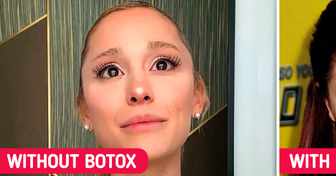
18 Women That Took Part in Transformation Shows and Became Completely New People
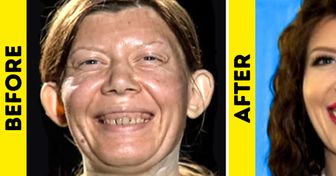
The World’s Hairiest Girl Is Completely Shaved, and She Looks Unrecognizable Now
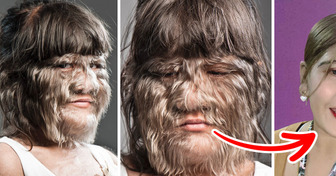
18 People Who Dared to Get Plastic Surgery and Hit the Jackpot
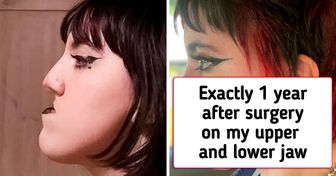
10 Stories From People Who Regretted Eating at Someone’s House
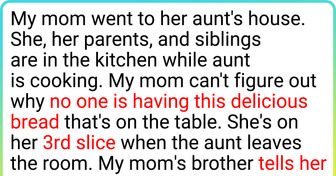
Michael Jackson’s Son “Blanket” Debuts New Nickname in Search of New Identity
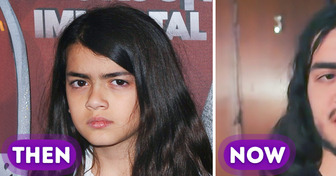
14 Things People Do That Make Hotel Staff Say, “You Can’t Be Serious...”
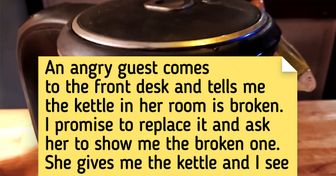
19 Photos Reveal the Astonishing Contrast Between Everyday and Professional Makeup
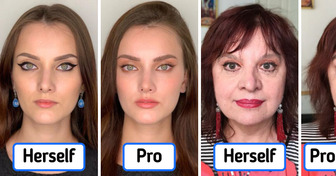
People Share 15 Tips That Sound Fake at First, but They Really Work
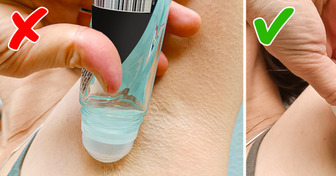
17 Kind People Who Just Made Other People's Life Better

My Teenage Daughter is Shaking My Confidence as a Woman— I Decided to Send Her to Boarding School
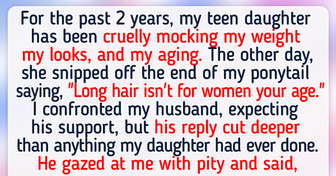
I’m Utterly Shocked After Overhearing My Fiancé and His Mom’s Malicious Plot Against Me
